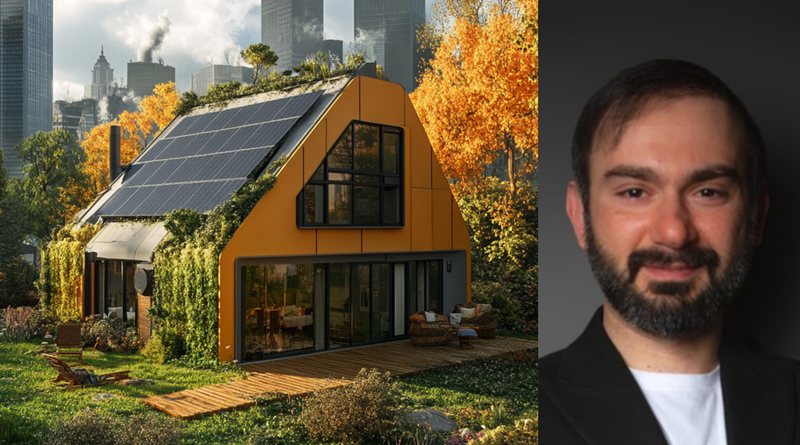Patenting sustainable technologies and business models – Interview with Dr. Alihan Kaya
Green technologies play a crucial role in addressing global environmental challenges and fostering a sustainable future. These innovations, ranging from renewable energy solutions to advanced waste management systems, are essential for reducing environmental pollution, enhancing energy efficiency, and conserving natural resources. The connection between patents and sustainability is significant, as the intellectual property system incentivizes the development and commercialization of sustainable innovations. Patents provide legal certainty and competitive advantages for green tech inventors, encouraging investment in crucial areas like alternative fuels and clean energy. Recent analyses show that nearly one-third of all patents now relate to the UN Sustainable Development Goals (SDGs), with substantial patent activity in areas such as renewable energy and emission reductions. This trend highlights the growing focus on sustainable technologies and demonstrates how intellectual property rights are driving innovation towards a more environmentally responsible future.
We interviewed Dr. Alihan Kaya about the importance of green technologies and the role of IP protection for sustainable businesses.
What are green technologies?
They are basically smart, eco-friendly innovations that help us tread more lightly on the planet. We’re talking about inventions and systems designed to tackle environmental issues head-on. In a nutshell, green tech covers a wide range of solutions. There’s clean energy, like solar panels and wind turbines, which generate electricity without the nasty emissions. Then you’ve got energy efficiency stuff, like smart thermostats or super-efficient appliances that cut down on power use. Don’t forget about sustainable transport – electric vehicles, hydrogen fuel cells, anything that gets us from A to B without guzzling gas. Green tech also includes advanced recycling and waste reduction methods, water conservation techniques, and even green building materials and designs. The key thing is, these technologies are all about finding clever ways to live, work, and grow without wrecking the environment. It’s innovation with a conscience, you could say. And it’s not just pie-in-the-sky stuff – a lot of these technologies are already making a real difference in how we do things. In addition to that, we see a stimulus in citizen participation thanks to this. There are many consumers who are eager to make a change. Now they can also be part of this new story by influencing the policies of enterprises, or even becoming entrepreneurs themselves. They can identify problems and deduce new business models that are beneficial for fellow humans. This mind-set shift stimulates creativity and inventiveness. It’s pretty exciting to see that all these shape sustainable future for all of us.
How do patents incentivize the development of green technologies?
Patents are a big deal in driving green tech forward. They give inventors exclusive rights to their eco-friendly ideas for a set time, which is like a golden ticket. This exclusivity means they can profit from their inventions without immediate competition.
Developing green tech can be expensive and time-consuming. Patents offer a promise that this effort won’t be wasted, encouraging more people and companies to invest in creating new green solutions. It’s a financial incentive that’s crucial for innovation. As we face ongoing environmental challenges, having a system that rewards eco-friendly innovation is crucial for our planet’s future. Patents are helping create green jobs and push forward progress in sustainable tech. The more people and money involved, the faster the perpetual motion towards a sustainable future will eventually get.
Are there support programs for the development and patent protection of green technologies and how can you access them?
A bunch of countries, including the US, China, Japan, and others, have fast-track programs to speed up patents for eco-friendly inventions. It’s like a VIP line for green ideas. To get in on this, you usually need to prove your invention is actually green, fill out some forms, and maybe pay a fee. Each country has its own rules, but the gist is the same: explain why your tech is green, and they’ll put your patent on the fast track. It can cut the wait time from years to just months in some cases. Just remember, while it sounds great, make sure it’s the right move for you before jumping in. These programs are always changing, so it’s smart to double-check with the patent office for the latest details before you dive in.
What is the relationship between those patents and the protection of new models?
Green patents and new business models are like two peas in a pod when it comes to eco-friendly innovation. These patents don’t just protect the tech itself; they’re also safeguarding the fresh ways companies are doing business to save the planet.
Think about it: A lot of green tech isn’t just about a new gadget, but a whole new way of thinking about how we use resources. So when a company comes up with a clever business model that’s all about sustainability, patents can help lock that in.
For example, a startup might patent not just their solar panel design, but also their unique system for sharing excess energy with neighbours. This protection gives them breathing room to grow their business without copycats swooping in.
In the end, it’s all about giving eco-friendly innovations a fighting chance in the market. Patents are helping green businesses stand out and thrive in a world that’s hungry for sustainable solutions.
About the interviewee
 Dr. Alihan Kaya is an electromechanical engineer who has worked as a scientific researcher at various universities in Germany, Turkiye, and Belgium on sustainable technologies, including thermal energy systems, energy efficiency in the automotive industry, e-mobility, smart grids, and sustainable renovation. Since 2008, he has been involved in the IP field, assisting SMEs, multinationals, and universities with IP management and as a patent engineer. He currently handles IP matters in sustainable technologies at Erdem Kaya & Partners and leads business development for IP-based business models in collaboration with global IP firms, SMEs, and universities.
Dr. Alihan Kaya is an electromechanical engineer who has worked as a scientific researcher at various universities in Germany, Turkiye, and Belgium on sustainable technologies, including thermal energy systems, energy efficiency in the automotive industry, e-mobility, smart grids, and sustainable renovation. Since 2008, he has been involved in the IP field, assisting SMEs, multinationals, and universities with IP management and as a patent engineer. He currently handles IP matters in sustainable technologies at Erdem Kaya & Partners and leads business development for IP-based business models in collaboration with global IP firms, SMEs, and universities.



